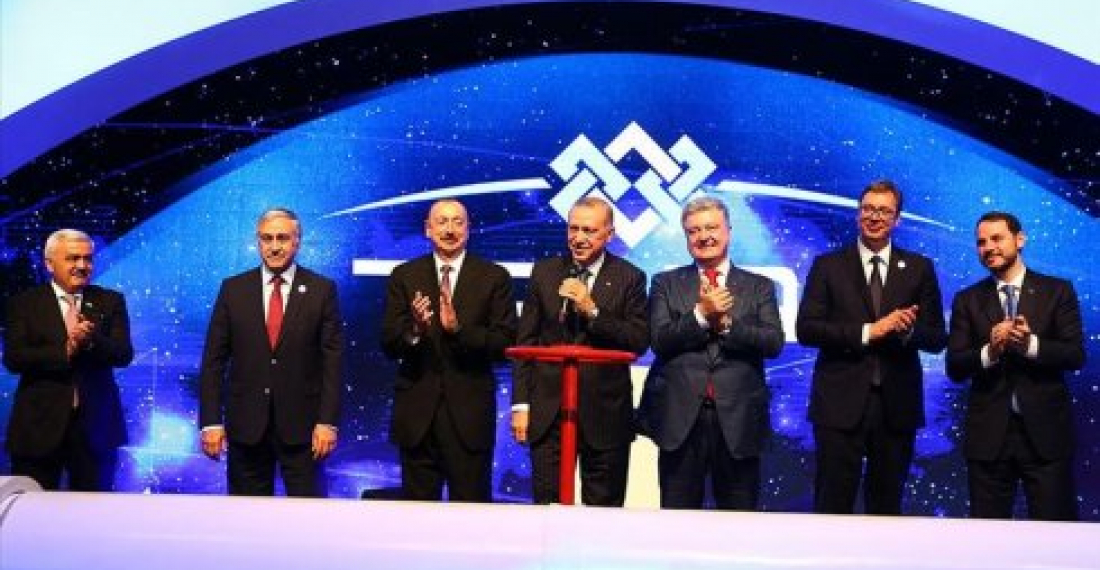Updated
Turkish President Recep Tayyip Erdogan and Azerbaijani President İlham Aliyev on Tuesday (12 June) inaugurated the Trans Anatolian Natural Gas Pipeline (TANAP) project at a ceremony in central Turkey.
"This project is a product of a close friendship between Turkey and Azerbaijan. Transit countries have also played a key role. With this project, gas from Azerbaijan will be carried to Europe for the first time," said Erdoğan, adding that close cooperation between Turkey, Azerbaijan and Georgia have brought the Baku-Tbilisi-Ceyhan Oil Pipeline in the past.
TANAP is not only important for maintaining energy security, but also for improving welfare in the countries it the pipeline runs through, Erdogan said.
He added that the project would make a great contribution to peace and stability in the region, thanking to the United States and the European Union for their support to the project.
"We are moving one step closer to becoming an energy hub with this project," the Turkish president also said.
The Trans-Anatolian Natural Gas Pipeline Project (TANAP), which will deliver gas from Azerbaijan's Shah Deniz-2 field and other fields in the Caspian Sea to Turkey and onwards Europe, is due to start operations today.
Turkish President Recep Tayyip Erdogan, Azerbaijani President İlham Aliyev and Georgian President Giorgi Margvelashvili are expected to attend the ceremony in the central Turkish province of Eskisehir,
TANAP would further regional cooperation between Turkey, Azerbaijan and Georgia. The three countries have engaged in major projects in recent years that would integrate the Caspian basin with the world.
TANAP, with around $8.5 billion of investment, will deliver 6 billion cubic meters (bcm) of Azeri gas to Turkey and 10 billion cubic meters to Europe per year. The European part of the project is expected to become operational in 2020.
Currently, TANAP has four partners. The Southern Gas Corridor (SGC) holds a 58 percent stake in TANAP, while Turkey's Petroleum Pipeline Corporation (BOTAS) and BP own 30 percent and 12 percent, respectively. Seven percent of SGC's stake has been recently transferred to the Turkish subsidiary of the State Oil Company of the Azerbaijan Republic (SOCAR).
Turkey imports some 6.6 bcm of natural gas from Azerbaijan via the Baku-Tbilisi-Erzurum pipeline and the amount will go up to 12.6 bcm as TANAP brings in an additional 6 bcm of natural gas, resulting in a decrease of Russian gas in Turkey's energy imports.
In October 2017 the European Bank for Reconstruction and Development (EBRD) approved a USD 500 million loan to TANAP to help finance the project.
source: commonspace.eu
photo: President erdgan of Turkey and Pesident Aliyev of Azerbajan and other regional leaders at the inauguration of the TANAP project, at a ceremony in central Turkey on 12 June.






